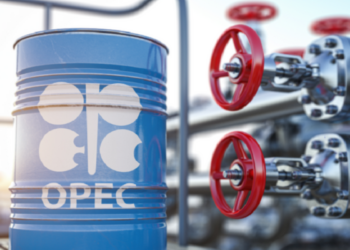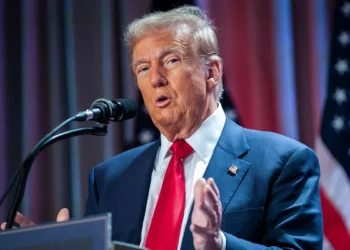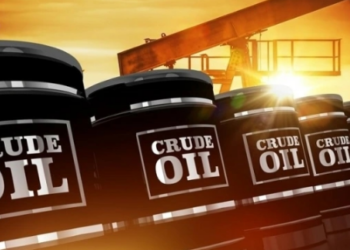Nigeria is currently fighting on many fronts, battered by the sudden plunge in oil prices and the global economic slowdown resulting from the COVID-19 pandemic. Many of the country’s major trade partners (including China, India, the UK, and the US) have also been affected by the negative effects of the pandemic. Needless to say that this has compounded the problems of Africa’s most populous country.
Nigerian stocks have since fallen to an 8-year low even as external reserves continue to plummet, standing at about $34.5 billion as of April 10, 2020.
The situation is reminiscent of the 2016 recession
Recall that Nigeria had just recently emerged from the aftershocks of the 2016 recession, which was also caused by a severe long-term fall in crude oil prices. As you may well know, crude oil makes up about 90% of Nigeria’s export earnings and 60% of government revenue. Therefore, whenever the global oil prices crash, everything falls apart in Abuja.
But then again, the oil price slump was not the only thing responsible for the 2016 recession. Uninspiring economic policies, weak infrastructural base, and consistently low consumer demand were also some of the other factors responsible.
What should Buhari do now?
President Muhammadu Buhari, who now faces the possibility of a second recession during his tenure, recently admitted to facing a challenging situation. While his economic team must be working round the clock to come up with possible palliatives/solutions, Nairametrics has also sought the opinions of experts which might help. After all, saving the economy is the most important thing at this point. A little change in the current model of Buharinomics may not hurt.
(READ MORE: Nigeria faces breaking point as India’s global crude oil demand drops by 70%)
Experts’ Opinions on fending off recession in Nigeria
Thelma Ugonna (CFA) is a Financial Analyst at a leading bank in Nigeria. In an emailed response to Nairametrics regarding the current issue at hand, she stressed the need for the government to stimulate the economy at this point, through relevant investment in infrastructure. She also believes that efforts should towards diversifying the economy should be intensified.
“In order to fend off recession post -COVID-19 pandemic, the Nigerian Government would need to stimulate the economy by investing strongly in relevant infrastructure development as this would increase employment in both the formal and informal sectors of the economy expectedly translating to increased spending and economic growth.
“Furthermore the Nigerian Government should urgently improve power supply and the energy sector in general as this would certainly lead to the growth of the production of goods and services. It’s well known that a stable power supply would reduce the cost of running business significantly, and lead to the development of the manufacturing and industrial sector in Nigeria.
“Diversifying the Nigerian economy from its harmful dependence on Crude Oil is one topic that cannot be over-emphasized. Hence critical agencies/ministries such as the Agricultural, Science and Technology, Trade and investment, Education among others need to rise up to the challenge to develop and drive such diversification programs in the coming years.”

There is no gainsaying the fact that Nigeria is in for a rough ride. And we can also not ignore the macroeconomic interventions that the government has so far taken in a bid to strengthen the economy during this difficult time. Yet, Nigeria remains largely exposed due to its high dependence on oil. This is why some experts are calling for more intervention efforts from the government.
(READ MORE: How Nigeria recorded its highest non-oil exports ever in 2019)
According to Moshood ‘Bode Abolade, an investment professional at Africa50, there is an urgent need for more incentives targeted at key sectors of the economy. Speaking to our analyst by phone, Abolade said:
“There’s a need for incentives (like intervention funding and zero duty on essential raw material imports) to keep primary sectors like agriculture and manufacturing sectors running in Nigeria. Considering that these are the primary employers of labor, this will keep the labor force active, retain production and domestic demand.
“But the problem with implementing these things in Nigeria from experience is that incentives tend to get misappropriated and/or end up not having desired effects.”
As the concerns over a global recession continue to worry many, Nigeria is restarting its diversification drive in order to strengthen its economy during difficult times. The Federal Government had also announced that it would be rolling out long-awaited reforms in the coming weeks after the CBN recently boosted the economy with its stimulus package. However, failure to carry out the diversification efforts over the longer term could bring the Nigerian economy to a standstill.
























This Government has frittered lots of money away on shady SIPs leaving out money generating ventures like trade and manufacturing. No amount given to an idle region will ever be enough. It’s time for a rethink.
In short to medium term, government should inject funds into the critical sector of the economy to trigger production and spur consumer spending. In long term, diversification should be the utmost priority for trajectory to economic emanticipation from oil.
Lockdown,should have been selective from state to state and even withing a state depending on the infection level in each state and area within the state.
The time has finally come, for government to shift from total dependent on oil as the major source of income to the nation economy, I strongly suggest that the three tears of Governments should focus on crazy and committed investment on Agriculture in all angles, that is farming and processing of farm products. Release money to encourage agro-processing industries to reduce farm waistages. On lockdown, may we not see war, we need to Bear the pains now to save our lives.